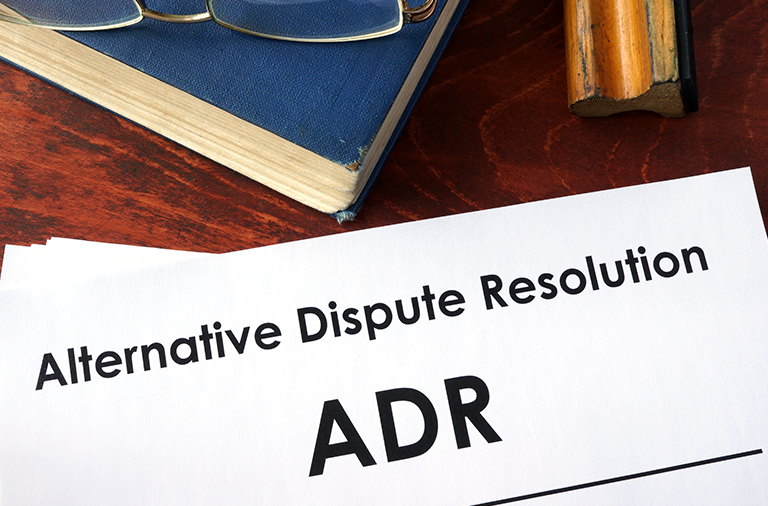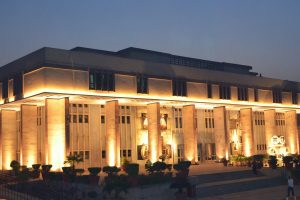JUDGMENT ALERTS
NHAI Settles Arbitration Claims worth over Rs 13,000 crore through Conciliation

JUNE 17, 2020: The National highways authority of India (NHAI) has settled arbitration claims worth over Rs 13,000 crore through conciliation since FY 18 as it moves aggressively to reduce its liabilities through an out-of-court settlement. NHAI has constituted three Conciliation Committees of independent experts (CCIE) of three members each, which are headed by retired officials from the judiciary, senior experts from public administration, finance and the private sector.
READ MORE
Raise All Disputes over the Contract before the Single Tribunal: Delhi High Court
 June 23, 2020: The Delhi High Court on Tuesday ruled that all disputes over a contract, as far as possible, must be raised together before a single tribunal and multiple tribunals must be shunned. “All disputes that are in existence when the arbitration clause is invoked, ought to be raised and referred at one go,” Judge Pratibha M. Singh said. Any subsequent disputes must be referred to the same tribunal if it was still in existence.
June 23, 2020: The Delhi High Court on Tuesday ruled that all disputes over a contract, as far as possible, must be raised together before a single tribunal and multiple tribunals must be shunned. “All disputes that are in existence when the arbitration clause is invoked, ought to be raised and referred at one go,” Judge Pratibha M. Singh said. Any subsequent disputes must be referred to the same tribunal if it was still in existence.READ JUDGMENT
Government Cannot Claim Privileges in Arbitration Matters
The Arbitration & Conciliation Act, 1996 (hereinafter with its advent has paved way for an effective alternate dispute resolution mechanism but reduces the importance of certain the procedural and other substantive laws that forms the basis of settling disputes before the courts. The Act focuses on party autonomy where the mutual rights and liabilities emerge out of the contract between the parties at the same time treating all the parties involved alike. The question in this case which perturbs us, as to what is the position when one of the party is the Government? Does the government enjoy any special privilege as it does in the case of suits filed before courts under the Civil Procedure Code? This is what exactly was an elaborate point of discussion in Pam Developments Private Ltd. Vs. State of West Bengal ((2019)8 SCC 112).
LEGAL DISCOURSE
ET Q&A:‘Foreign arbitrators must be allowed to be stationed in India’
If India needs to become an international hub for arbitration, then the country needs to allow foreign arbitrators to represent matters related to foreign parties, senior counsel Arvind Datar tells Satish John & Maulik Vyas. If India needs to become an international hub for arbitration, then the country needs to allow foreign arbitrators to represent matters related to foreign parties, senior counsel Arvind Datar tells Satish John & Maulik Vyas. International finance centres such as New York, London, Singapore and Dubai have a robust arbitration culture and India needs to learn from these places, he says.
READ MORE.
READ: CALL FOR BLOGS BY LEGAL READINGS
Mediation in India in the Age of COVID-19
 We live in strange times. Old certainties have given way to new uncertainties. Down the ages, Lady Justice, sword in one hand and eyes blindfolded have been pretty much like the Rock of Gibraltar, ensuring stability, but also being resistant to change. One bug christened COVID-19 comes along and the Lady is reeling. At the heart of the adversarial system is advocacy performed in an open setting, in the full gaze of clients and fellow lawyers, and that has dictated modes of thought and approach and behaviour, all integral to the system. Justice must not only seem to be done, but judges must also be seen while they are engaged in the task of doing it. But the presence in numbers necessitates proximity, and now proximity spells danger. Deprived of their natural setting of the courtroom, judges and lawyers have fallen back to talk of virtual courts, so that the bare essential is achieved — the judge being able to hear the particular lawyer. All other features of the courtroom are eschewed, and thus an essentially public setting is converted to a closed-door one. It is and will remain, unsatisfactory.
We live in strange times. Old certainties have given way to new uncertainties. Down the ages, Lady Justice, sword in one hand and eyes blindfolded have been pretty much like the Rock of Gibraltar, ensuring stability, but also being resistant to change. One bug christened COVID-19 comes along and the Lady is reeling. At the heart of the adversarial system is advocacy performed in an open setting, in the full gaze of clients and fellow lawyers, and that has dictated modes of thought and approach and behaviour, all integral to the system. Justice must not only seem to be done, but judges must also be seen while they are engaged in the task of doing it. But the presence in numbers necessitates proximity, and now proximity spells danger. Deprived of their natural setting of the courtroom, judges and lawyers have fallen back to talk of virtual courts, so that the bare essential is achieved — the judge being able to hear the particular lawyer. All other features of the courtroom are eschewed, and thus an essentially public setting is converted to a closed-door one. It is and will remain, unsatisfactory.
READ MORE
COURT UPDATES
Telangana High Court creates COVID-19 fund; suspends regular judicial work, Mediation & Arbitration Centres till July 20,2020
June 28, 2020: It also extended suspension in all the subordinate courts, tribunals, Telangana state legal services authority, mediation and arbitration centre and HC legal services committee and state judicial academy are extended till July 20 or until further orders of the High Court.
READ MORE
CONFERENCE/WEBINAR ALERTS FOR LEGAL PRACTITIONERS
SIAC INDO CHINA WEBINAR: An Introduction to International Arbitration: JUNE 30, 2020
Arbitration in Practice: A Close Look at the IBA Guidelines on Conflicts of Interest in International Arbitration
A webinar presented by the IBA Asia Pacific Arbitration Group, supported by the IBA Arbitration Committee and the IBA Asia Pacific Regional Forum
A foundational principle of international arbitration is that the arbitrators deciding a dispute must not only be but also remain independent and impartial of both the parties and the dispute. However, an arbitrator’s own assessment as to his/her impartiality is likely to be influenced by his/her background and legal training. As a result, disclosure statements were often made on different bases.
WEBINAR FOR LAW STUDENTS
International Webinar Series: Special Focus on ARBITRATION
Eligibility: Students of 3/5 year LL.B. degree courses from any institution recognized by B.C.I. and LL.M. students are eligible to participate.
Law College Dehradun
SAROSH ZAIWALLA & ABHISHEK ANAND
Topic: Seat v. Venue in International Commercial Arbitration: India & UK law perspective
Schedule: JULY 4, 2020 AT 05:00 PM IST
TOPIC: The Intersection between Insolvency and International Arbitration
Schedule: JULY 5, 2020 AT 05:00 PM IST
Prof. GARY B. BORN and KUNAL VAJANI
TOPIC: INTERNATIONAL COMMERCIAL ARBITRATION: Arbitrating in the Pandemic and Beyond
Schedule: JULY 7, 2020 AT 04:30 PM IST
TOPIC: Basics of International Commercial Arbitration and Litigation Funding
Schedule: JULY 11, 2020 AT 05:00 PM IST
REGISTRATION LINK

















Add Comment